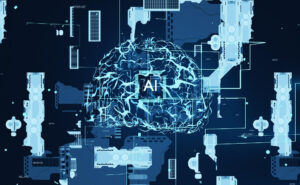In today’s fast-paced digital age, businesses face disruptions that once seemed unimaginable. The progression of technological advancements—from automation and artificial intelligence (AI) to blockchain technology and data analytics—is fundamentally reshaping numerous sectors and presenting considerable challenges to traditional business paradigms. This discourse examines the substantial influence of these technological progressions on enterprises and delineates methodologies for organizations to adjust and thrive in an environment characterized by rapid change.
How Technology Fuels Business Disruption
Technology has evolved from a tool for efficiency into a driver of disruptive innovation. Companies like Uber and Airbnb have revolutionized entire sectors by leveraging digital platforms and peer-to-peer models. These tech-driven enterprises have not only changed how people access services but have also redefined consumer expectations across industries.
1. Automation and AI: Revolutionizing Business Operations
Automation and AI have transformed operations across various sectors. Automated systems reduce manual, repetitive tasks, while AI algorithms enable data-driven decision-making. For instance, AI-powered chatbots provide 24/7 customer support, reducing wait times and enhancing satisfaction. In manufacturing, robotics and machine learning optimize production, increasing efficiency and minimizing errors.
AI also personalizes marketing strategies by using consumer behavior data to target ads effectively. This approach benefits e-commerce and retail sectors by offering insights into customer preferences and predicting future purchases. However, companies must address data privacy and ethical concerns to maintain consumer trust.
2. Big Data Analytics: Enhancing Insights and Decision-Making
Big data analytics is another significant advancement shaping modern business. Through the meticulous examination of extensive datasets, corporations acquire significant understanding regarding consumer behaviors, market dynamics, and operational efficacy. This empirical methodology facilitates organizations in the timely modification of strategies, thereby enhancing organizational agility.
Predictive analytics helps businesses anticipate demand, supporting effective inventory management. In healthcare, extensive data analysis promotes personalized medicine, allowing treatments tailored to patients’ genetic profiles and medical histories. However, leveraging big data effectively requires robust cybersecurity measures to prevent data breaches, which could impact a company’s reputation and compliance.
Disruptive Technologies Transforming Business Models
Technologies like blockchain, cloud computing, and the Internet of Things (IoT) are not only optimizing business models but creating entirely new opportunities. These innovations empower companies to reach customers more effectively and deliver unique value propositions.
1. Blockchain: Enhancing Security and Transparency
In finance and supply chain sectors, blockchain technology offers decentralized, secure, and transparent ways to record transactions. Blockchain minimizes fraud risks and increases customer trust. For instance, blockchain tracks food products from farm to table, ensuring traceability and accountability. Although blockchain holds vast potential, its implementation is still evolving, and businesses need to assess its feasibility based on industry needs.
2. Cloud Computing: Increasing Flexibility and Collaboration
Cloud computing has transformed data storage, access, and sharing. By moving to the cloud, companies benefit from cost savings, scalability, and remote accessibility. This technology is especially beneficial in today’s remote work environment, enabling global teams to collaborate seamlessly. However, cloud adoption requires careful attention to data security and compliance to prevent unauthorized access and data breaches.
3. IoT: Connecting Physical and Digital Worlds
The Internet of Things (IoT) connects physical devices to the internet, creating networks of smart devices that collect and share data. IoT applications are diverse—from smart homes to connected vehicles. In retail, IoT sensors track inventory in real-time, ensuring accurate stock management. In manufacturing, smart machinery uses predictive maintenance, reducing downtime. However, businesses must address data privacy and interoperability issues when adopting IoT.
Challenges in Adopting Technological Advancements
While these technologies present significant growth opportunities, they also pose challenges. A primary hurdle is the digital skills gap. As technology advances, the need for skilled talent increases, creating a shortage. Companies are investing in training programs and upskilling, but bridging this gap remains a challenge.
Data security is also a crucial concern. As organizations amass increasingly vast quantities of data, they concurrently exhibit heightened susceptibility to cyber incursions. Prominent instances of data compromise underscore the imperative for robust cybersecurity protocols. Organizations must establish data protection strategies to secure digital assets and maintain customer trust.
Finally, navigating regulatory challenges is essential. As technology evolves, so do regulations. For example, AI in finance must comply with strict anti-discrimination laws, while healthcare providers using IoT must adhere to privacy standards like HIPAA. Staying updated on regulatory changes is essential for legal compliance and ethical practices.
Future Outlook: Navigating the Technological Landscape
The future of business is digital, and companies that embrace technological advancements are more likely to thrive. Organizations should adopt a proactive approach, consistently exploring new technologies and assessing alignment with business goals. Collaborations with technological providers, the allocation of resources towards research and development (R&D), and the fostering of an innovative organizational culture are essential strategic imperatives.
Conclusion
Technological advancements are reshaping industries worldwide, disrupting traditional business practices and fostering innovation. Through the deliberate integration of artificial intelligence, comprehensive data analysis, blockchain innovations, and the Internet of Things, enterprises are endowed with the potential to enhance their operational efficiency and attain a strategic advantage within the competitive landscape. However, successfully adopting these technologies requires addressing challenges like skills shortages, data protection, and evolving regulations. Embracing a proactive approach to technological adaptation will be key for businesses to thrive in the digital future.
The upcoming First International Business Creativity and Research (BCR) offers a unique platform to explore these technologies and their industry impacts. Industry leaders, scholars, and practitioners will gather to discuss advancements and share strategies for leveraging innovative technologies to gain a competitive edge. By promoting knowledge exchange, the BCR Conference empowers businesses to navigate both the challenges and opportunities in today’s digital landscape.





